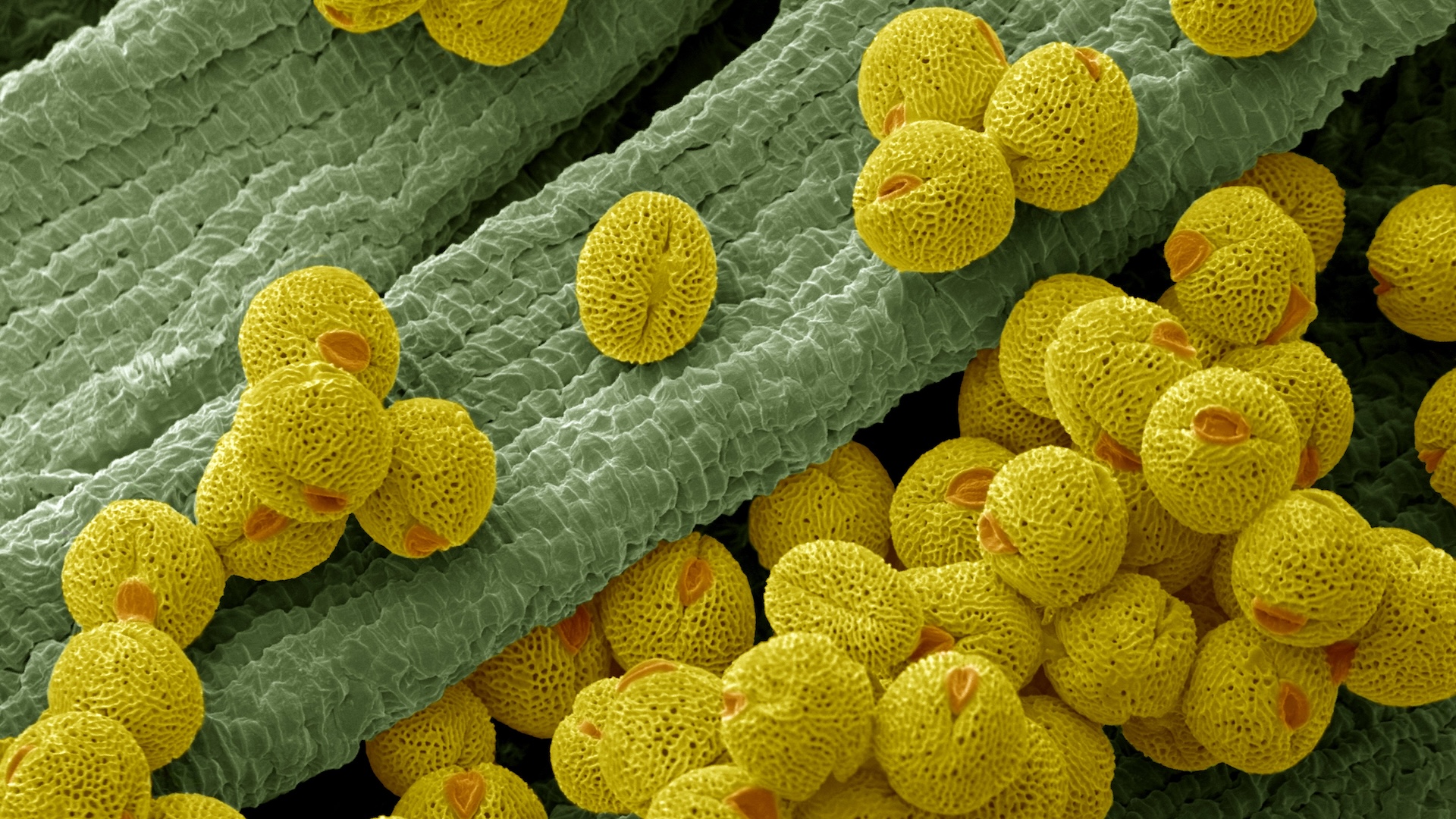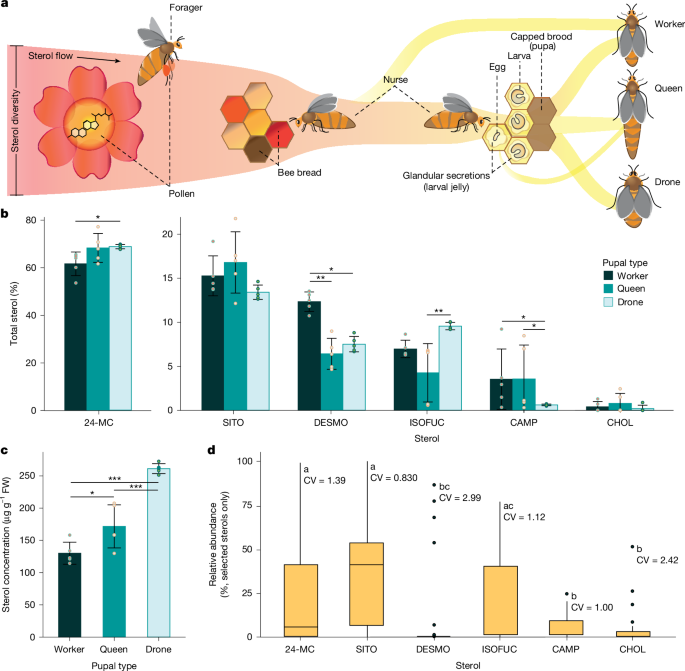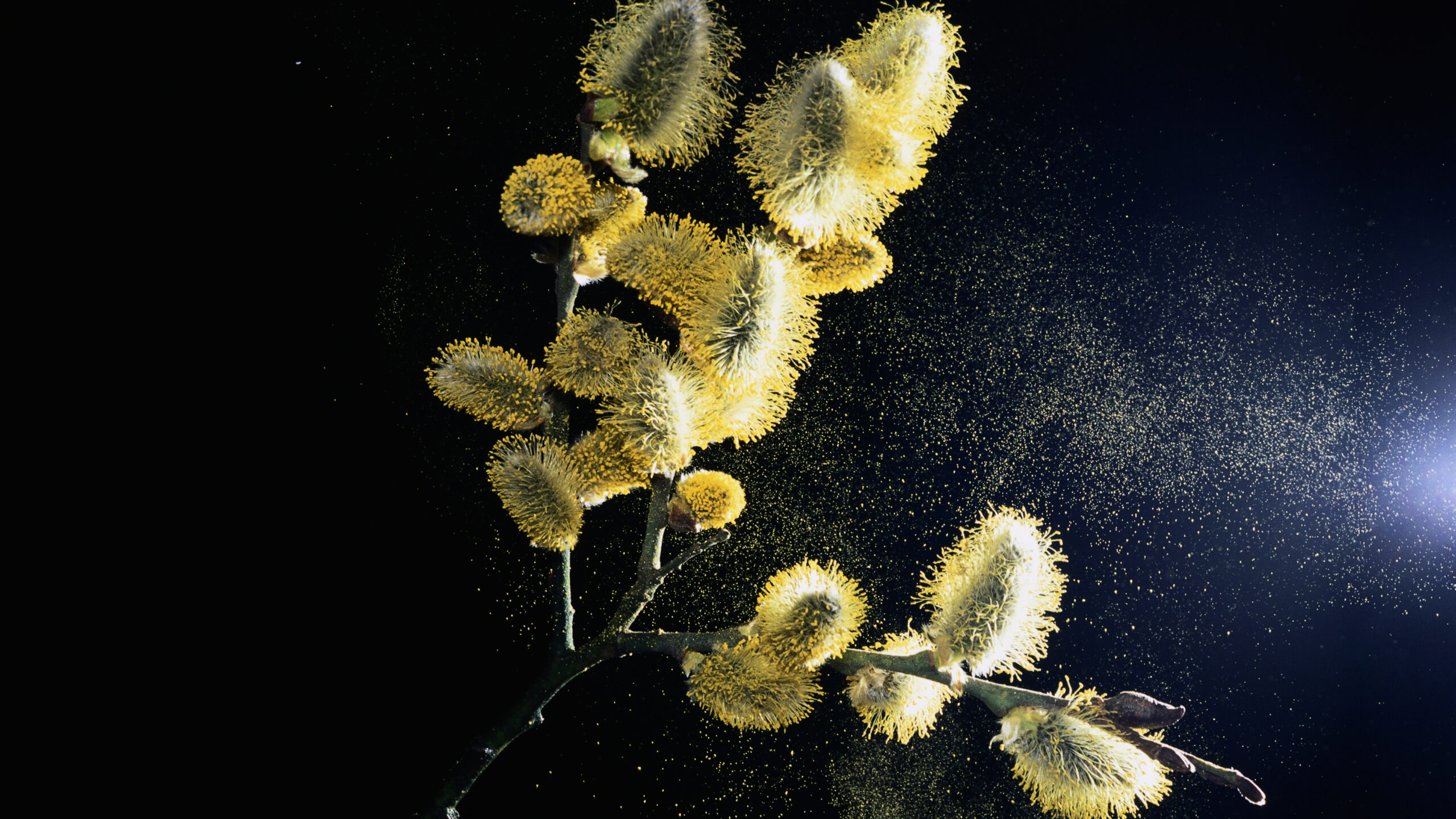The Surprising Medicine Hidden in Honeybee Pollen SciTechDaily Why pollen can be hidden source of natural medicine for honeybees | Research can also help in treatments of crops | Inshorts Inshorts Pollen holds a secret that could save honeybees ScienceDaily Pollen’s Natural Antimicrobials May Shield Bees Mirage News Source link
Read More »Tag Archives: Pollen
Scientists propose using pollen to make paper and sponges
At first glance, Nam-Joon Cho’s lab at Singapore’s Nanyang Technological University looks like your typical research facility — scientists toiling away, crowded workbenches, a hum of machinery in the background. But the orange-yellow stains on the lab coats slung on hooks hint at a less-usual subject matter under study. The powdery stain is pollen: microscopic grains containing male reproductive cells …
Read More »Engineered yeast provides rare but essential pollen sterols for honeybees
Strains, culture conditions and chemicals Escherichia coli strain DH5α was used for plasmid construction. E. coli was grown at 37 °C and 300 r.p.m. in lysogeny broth (LB) liquid medium and at 37 °C on plates of LB solid medium supplemented with 20 g l–1 agar. Ampicillin was supplemented at a concentration of 100 mg l–1 for plasmid selection. The Y. lipolytica W29 strain (MATa, Y-63746 ARS Culture Collection, …
Read More »Using pollen to make paper, sponges, and more
Softening the shell To begin working with pollen, scientists can remove the sticky coating around the grains in a process called defatting. Stripping away these lipids and allergenic proteins is the first step in creating the empty capsules for drug delivery that Csaba seeks. Beyond that, however, pollen’s seemingly impenetrable shell—made up of the biopolymer sporopollenin—had long stumped researchers and …
Read More »This ‘Molecular Shield’ Might Stop Pollen Before It Wrecks Your Nose
Every year, pollen seasons grow longer and more intense—to the great misery of those suffering from pollen allergies—myself included. There’s only so much one can do with antihistamines or hot towels, and no amount of protective measures—masks, firmly shut windows, you name it—appears to offer any protection from the endless sneezing, runny noses, and itchy eyes. But what if, by …
Read More »


